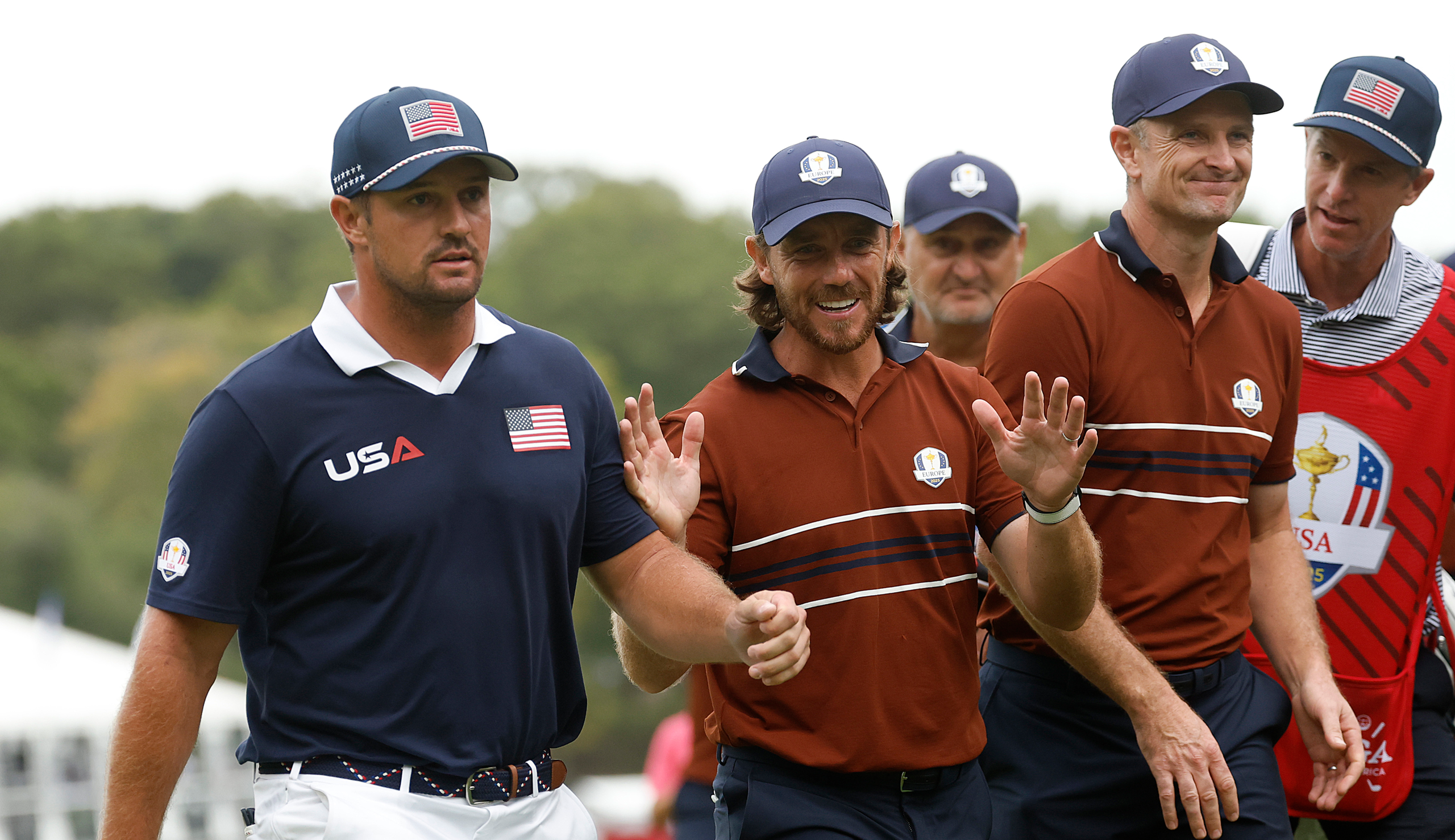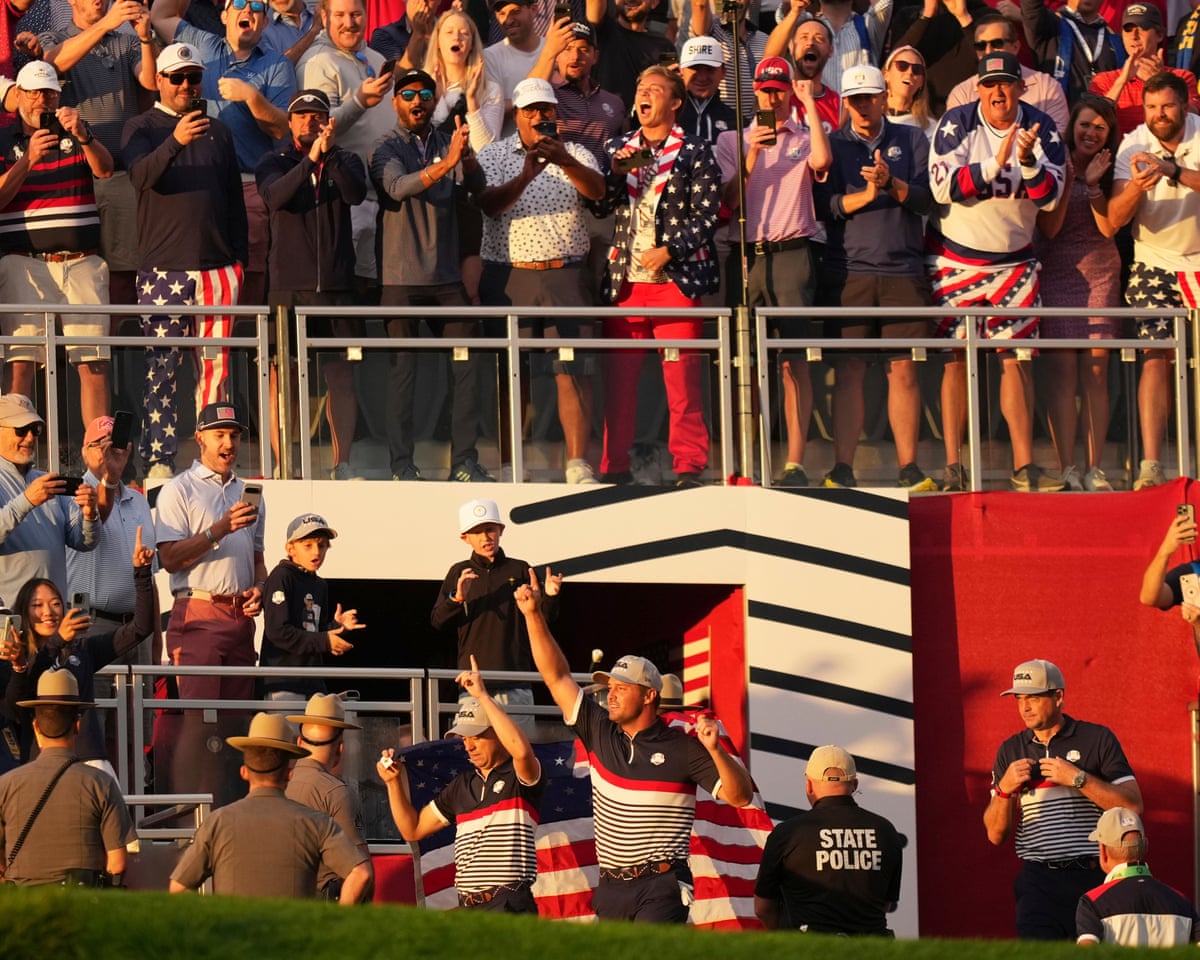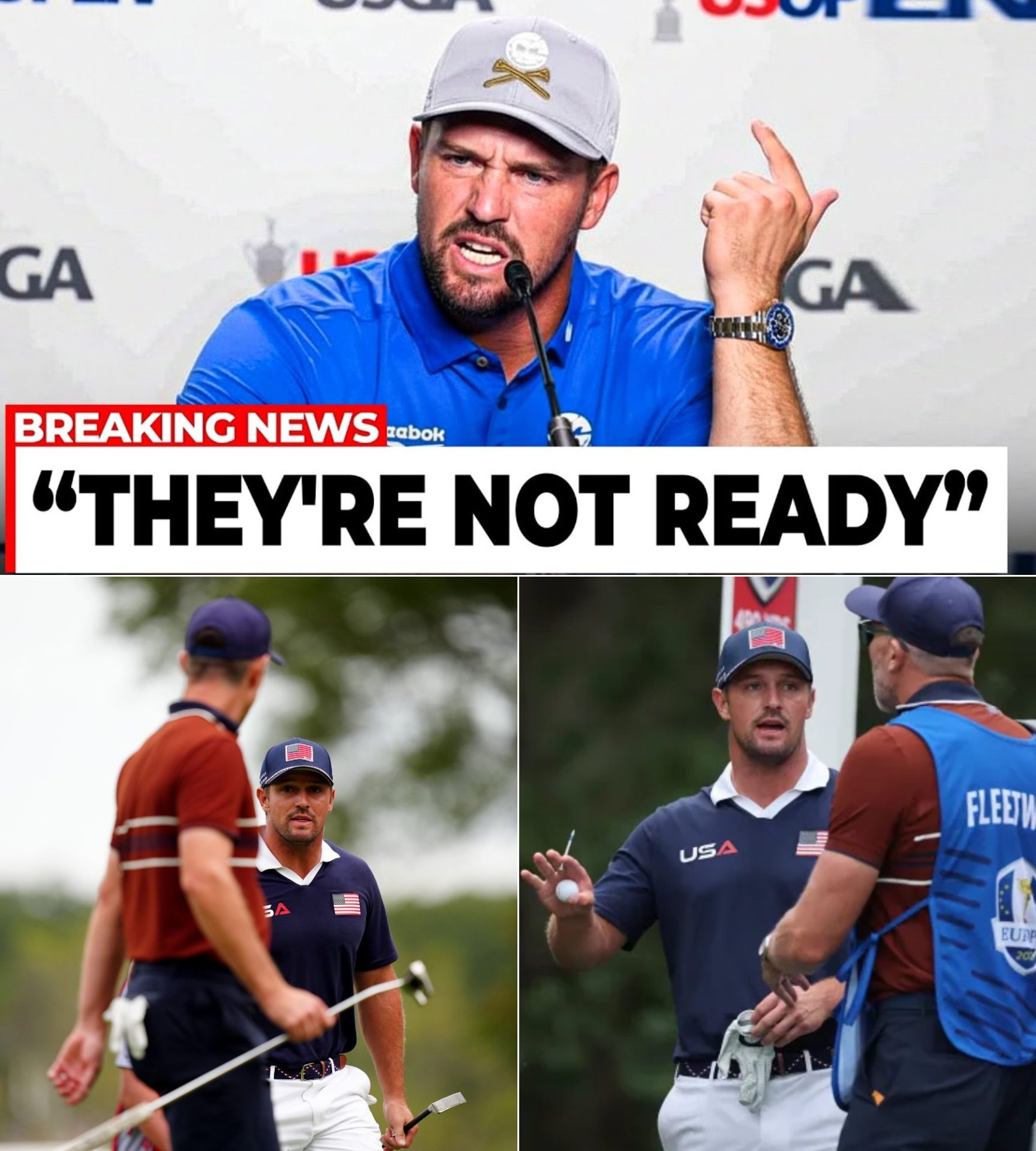What was supposed to be a celebration of golf’s greatest team event has spiraled into one of the most dramatic Ryder Cups in history. At Bethpage Black, amid roaring New York crowds and high-stakes competition, Bryson DeChambeau has become the lightning rod of controversy, igniting a chain reaction that now threatens to overshadow the golf itself.

The flashpoint came late in the match on the 15th green. DeChambeau’s caddy, in what many believe was an innocent mistake, stepped across Justin Rose’s putting line. Rose, a veteran of countless Ryder Cup battles, bristled immediately, voicing sharp disapproval. What should have ended as a minor dispute instead escalated into something far greater — because DeChambeau, never one to back down, snapped back with equal fire, fiercely defending his caddy’s honor.
From there, tensions exploded. Tommy Fleetwood stormed into the fray, his confrontation with DeChambeau adding fuel to the fire. On the sidelines, Scottie Scheffler’s caddy became entangled in his own spat with European vice-captain Francesco Molinari. Suddenly, the serenity of golf was gone, replaced by scenes more fitting for a heated derby match. For a few chaotic minutes, it felt as though the Ryder Cup itself was on the verge of descending into an outright brawl.

The crowd only made things worse. Known for their passion, American fans crossed the line, hurling insults and jeers that turned the atmosphere toxic. Rather than wilt, Team Europe fed off the hostility. The more chaos that unfolded, the calmer the Europeans appeared. Rory McIlroy, Viktor Hovland, and Rose himself seemed galvanized, playing with ice in their veins while the Americans visibly frayed. By the close of play, Europe held a commanding 11.5 to 4.5 lead, their psychological edge every bit as damaging as their scoreboard advantage.
Rose later attempted to downplay the moment, calling it “heat-of-the-battle stuff,” but the images told a different story: players pointing, caddies arguing, officials stepping in to diffuse the situation. DeChambeau’s refusal to back down — and his visible anger — made it clear this was no ordinary Ryder Cup squabble. For him, it was about more than golf. It was about loyalty, respect, and drawing a line in the sand.
But the fallout for Team USA may prove devastating. Already under pressure after a rocky start, the Americans looked splintered, their cohesion shattered. Observers noted slumped shoulders, strained body language, and exchanges between teammates that hinted at deeper cracks within the squad. In a competition that thrives on unity, this was the last thing the U.S. needed.
For DeChambeau, the episode is both a rallying cry and a heavy burden. He has cast himself as defender of his team and his people, but in doing so, he may also have placed a target squarely on his back. Every shot he now takes will be scrutinized, every gesture magnified. Meanwhile, Europe has transformed the confrontation into fuel, a reminder of their resilience under fire.

As the Ryder Cup barrels toward its conclusion, one question looms larger than the leaderboard: can Team USA recover from this public implosion? Or has DeChambeau’s fiery defense — however noble in intent — triggered a spiral that Europe will ride all the way to victory?
One thing is certain: whatever the outcome, the enduring image of this Ryder Cup may not be of clutch putts or towering drives, but of a tournament brought to boiling point by pride, tempers, and one man’s refusal to stay silent.

This Ryder Cup was meant to be about golf. Instead, it has become a theater of conflict, a clash of personalities as fierce as the battle for the trophy itself.








